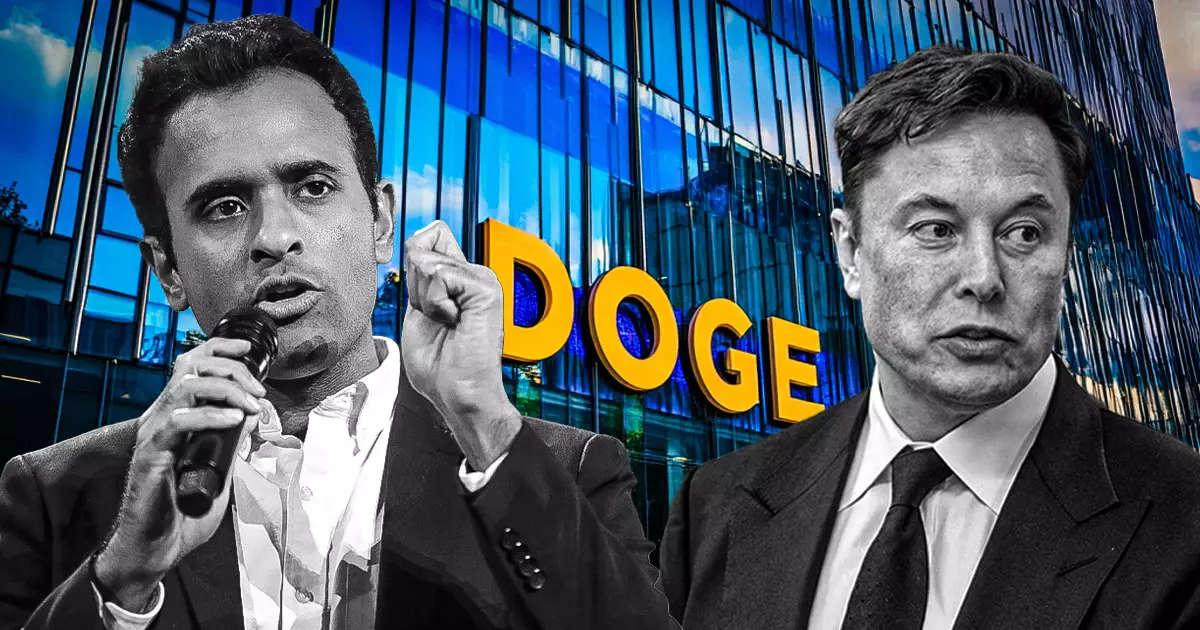In an unexpected yet captivating announcement, President-elect Donald Trump has appointed two notable figures in the tech and crypto landscape—Elon Musk and Vivek Ramaswamy—to spearhead a revolutionary initiative dubbed the Department of Government Efficiency (DOGE). This new department aims to tackle the inefficiencies that have long plagued the U.S. government. On November 13, Trump took to his Truth Social platform to unveil this initiative, emphasizing its goal to reconfigure the existing bureaucratic ecosystem, much like the historic Manhattan Project, which was tasked with developing nuclear weapons during World War II.
The initiative is framed as a critical component of Trump’s “Save America” campaign, a banner under which he hopes to rally support for his agenda of reducing federal waste and inefficiency. The stakes are high, with a budget of $6.5 trillion that Trump claims is rife with “waste and fraud.” The ambitious timeline set forth by the administration indicates a target to transform government efficiency by July 4, 2026—a symbolic date marking the 250th anniversary of the U.S. Declaration of Independence.
Both Musk and Ramaswamy are more than just loyal Trump allies; they bring a unique, tech-driven perspective that could disrupt traditional government operations. Musk, a well-known proponent of cryptocurrencies, has been vocal in his support for the former president, frequently appearing at rallies. Ramaswamy, having concluded his own presidential bid, endorsed Trump, signifying a unified front among tech enthusiasts and political conservatives.
Whether their insights can translate into effective government reform remains to be seen. Nevertheless, Musk’s commitment to transparency is apparent, as he plans to keep the public informed through online updates about DOGE’s initiatives. His declaration—“Anytime the public thinks we are cutting something important or not cutting something wasteful, just let us know!”—opens the door for civic engagement, encouraging a collaborative effort in governance.
Ramaswamy’s commitment to involving the public further enhances the initiative. He envisions DOGE as a platform for citizens to submit examples of governmental waste, echoing a broader desire among voters for substantial reform. His assertion that “Americans voted for substantial reform, and they deserve to play a role in achieving it” reinforces the idea that public input can be invaluable in shaping policy and ensuring accountability.
DOGE promises to introduce innovative features like a leaderboard to track the most wasteful government expenditures—an approach that blends entertainment with critical scrutiny of governmental functions. This gamification could captivate public interest and encourage active participation in ongoing reform discussions.
Interestingly, the choice of naming the department DOGE has ignited excitement among Dogecoin advocates, revealing the cultural resonance of the meme cryptocurrency. However, despite the enthusiasm, market reactions have been mixed, as Dogecoin’s price dipped by 10% following the announcement, even after a recent surge to a three-year high. Analysts note that while Musk’s connection to DOGE has historically boosted the cryptocurrency’s value, its immediate market performance remains uncertain.
As we move forward, the intersection of technology, finance, and governance represented by DOGE may symbolize a shift in political engagement—one that could inspire a new paradigm in how citizens connect with their government. Whether DOGE will meet its lofty goals remains to be seen, but it undoubtedly represents an intriguing chapter in the potential reform of U.S. governance.

